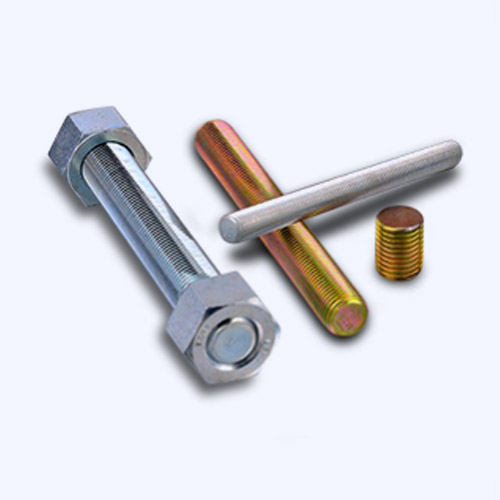

types of weld studs
Nov . 05, 2024 06:17 Back to list
types of weld studs
Understanding the Different Types of Weld Studs
Weld studs are essential components in construction and manufacturing, as they provide strong, permanent connections between various materials. These fasteners, often made of steel, are utilized in processes such as welding, where they are attached to a base material to facilitate the joining of different parts. There are several types of weld studs available, each designed for specific applications and offering unique advantages. In this article, we will explore the most common types of weld studs and their characteristics.
1. Plain Weld Studs
Plain weld studs, often referred to as standard weld studs, are the most commonly used type. They feature a smooth surface without any additional features, making them versatile for various applications. These studs are typically used in structural applications where a reliable connection is necessary. Their ease of use and strong holding capacity make them a popular choice among engineers and fabricators.
2. Threaded Weld Studs
Threaded weld studs have external threads that allow for secure attachment of nuts or other components. This design is particularly advantageous when a detachable connection is needed. Threaded studs are commonly used in applications where parts must be taken apart or replaced, such as in automotive and machinery assemblies. The ability to easily remove and replace components makes threaded weld studs a practical choice for many industries.
3
. Tapping Weld StudsTapping weld studs are a variation of threaded studs but are designed to cut their own threads into the material when they are installed. This feature eliminates the need for pre-tapped holes and allows for a faster installation process. Tapping studs are often used in industries where speed and efficiency are crucial, such as in production environments. Their ability to create threads on-site adds to their versatility.
types of weld studs

4. Flanged Weld Studs
Flanged weld studs have a wider base that provides an increased surface area for welding. This feature enhances the strength of the connection and makes them suitable for heavier loads. Flanged studs are particularly useful in applications such as construction and heavy machinery, where structural integrity is paramount. The added stability provided by the flanged design helps to prevent failures in demanding environments.
5. Arc Studs
Arc studs are designed for applications that require a high degree of electrical conductivity. These studs are often used in electrical grounding applications or in situations where a strong electrical connection is needed. The welding process used for arc studs ensures that they are securely attached to the base material, providing reliable conductivity for electrical systems. Their unique design makes them an essential component in various electrical installations.
6. Insulated Weld Studs
Insulated weld studs feature a protective coating that prevents electrical conductivity between the stud and the surface it is attached to. This type of stud is crucial in applications where it is necessary to avoid unintentional electrical connections, such as in certain electronic devices or systems. By providing insulation, these studs help maintain the performance and safety of electrical components.
Conclusion
In conclusion, weld studs play a vital role in ensuring strong and secure connections in various applications across multiple industries. The different types of weld studs, such as plain, threaded, tapping, flanged, arc, and insulated studs, each serve unique purposes and are designed to meet specific needs. Understanding the characteristics and applications of each type can help engineers and fabricators make informed decisions when selecting the right stud for their projects. Properly chosen and installed weld studs not only enhance the strength and durability of a construction but also contribute to overall safety and reliability in engineering designs. Whether in automotive manufacturing, structural engineering, or electrical systems, the role of weld studs remains indispensable.
Latest news
-
Premium Fasteners Manufacturer | AI-Driven Solutions
NewsAug.01,2025
-
Hot Dip Galvanized Bolts - Hebei Longze | High Strength, Corrosion Resistance
NewsAug.01,2025
-
High-Strength Hot Dip Galvanized Bolts - LongZe | Corrosion Resistance, Custom Sizes
NewsAug.01,2025
-
Best Self Tapping Screws for Drywall - Fast & Secure Installation
NewsJul.31,2025
-
High-Strength Hot Dip Galvanized Bolts-Hebei Longze|Corrosion Resistance&Customization
NewsJul.31,2025
-
Hot Dip Galvanized Bolts-Hebei Longze Metal Products|Corrosion Resistance&High Strength
NewsJul.31,2025

